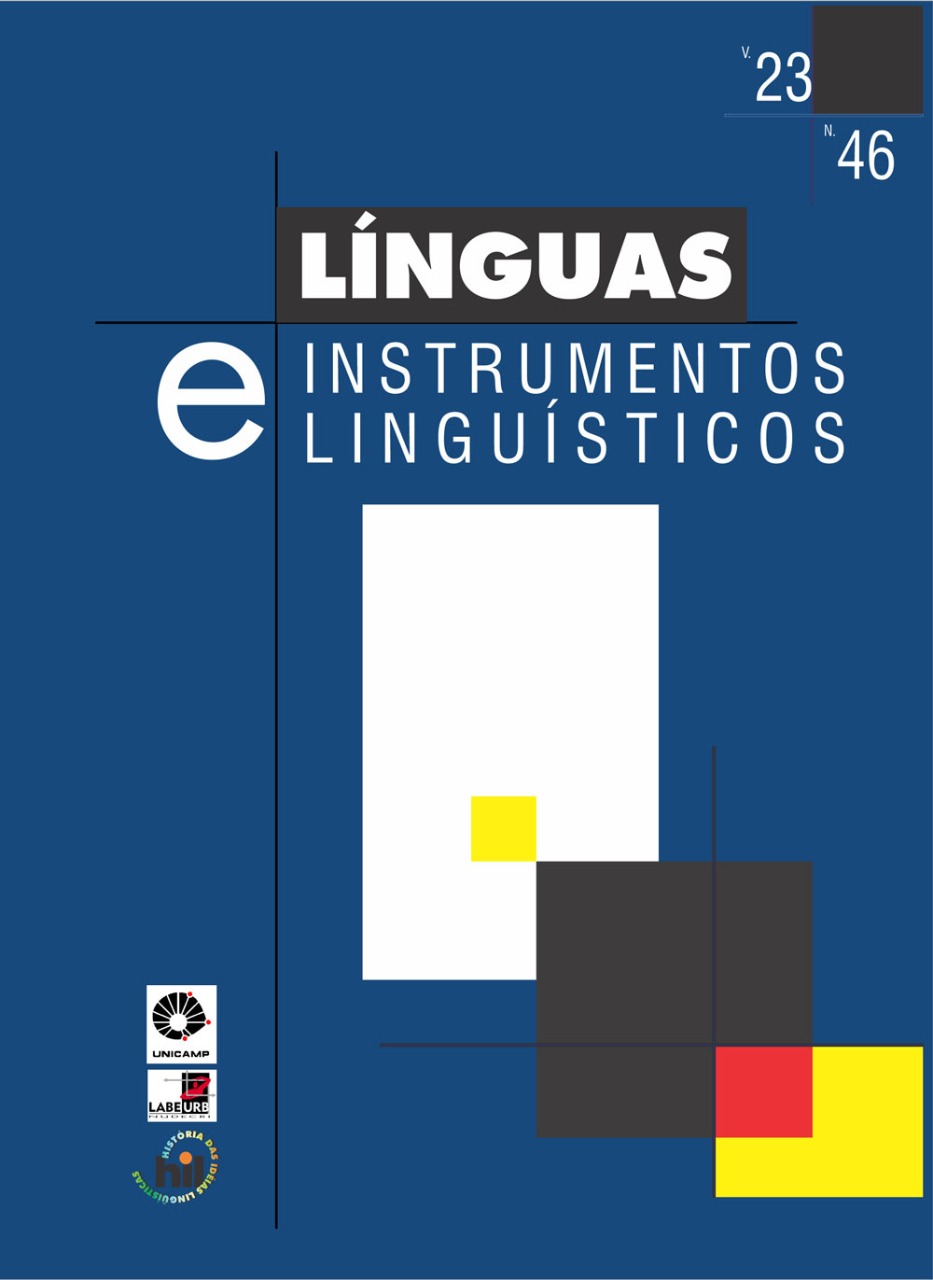Abstract
The purpose of this essay is to analyze, in the set of expressions that are used in antiquity to name languages, the meanings built around the expressions sermo patrius and patria lingua, asking about the metaphor of the father to name the Latin language in Antiquity.
References
AUROUX, Sylvain. (1992). A revolução tecnológica da gramatização. Campinas: Editora da UNICAMP.
BATANY, Jean. (1982). L’amère maternité du français medieval. Langue Française, Paris, v. 54, n. 1. p. 29-39.
BENVENISTE, Émile. (1995). O vocabulário das instituições indo-europeias. Campinas: UNICAMP, v. 2.
CHANTRAINE, P. (1937). Quelques emprunts du grec au latin. Revue des Études Latines, Paris, n. 15, p. 88-91.
COLOMBAT, Bernard; FOURNIER, Jean-Marie; PUECH, Christian. (2017). Uma história das ideias linguísticas. São Paulo : Contexto.
DUBUISSON, Michel. (2004). Le pouvoir et la langue: le cas du latin classique. Cahiers de l’ILSL, n. 17, p. 33-43. ________. (1981). Utraque lingua. AC, n. 50, p. 274-286.
EINHARD. (1880). The Life of Charlemagne. Trad. Samuel Epes Turner. New York: Harper & Brothers.
GABBA, Emilio. (2000). Il latino come dialetto greco. In: Roma arcaica: storia e storiografia. Roma, Edizioni di Storia e Letteratura, p. 159-164.
GRONDEUX, Anne. (2008). La notion de langue maternelle et son apparition au Moyen Age. In: VON MOOS, Peter (Éd.). Zwischen Babel und Pfingsten / Entre Babel et Pentecôte. Zurich : Berlin : Lit Verlag, p. 339-356
ORLANDI, Eni P. (2002). Língua e conhecimento linguístico: para uma história das ideias linguísticas no Brasil. São Paulo: Cortez.
OVÍDIO. (1936). Les Métamorphoses. Trad. J. Chamonard. Paris : Librairie Garnier Frères,.
OVÍDIO. (2000). Le metamorfosi. Trad. Guido Paduano. Torino: Giulio Einaudi editore.
ROCHETTE, Bruno. (2009). Les noms de la langue en latin. Histoire Epistémologie Langage, v. 31, n. 2, p. 29-48.
TOMBEUR, Paul. (2005). Maternitas dans la tradition latine. CLIO. Histoire, femmes et sociétés, Toulouse, n. 21, p. 1-6.
VEYNE, Paul (Org.). (2009). História da vida privada: do Império Romano ao ano mil. São Paulo: Companhia das Letras.
WOLFF, Philipee. (1970). Les origins linguistiques de l’Europe occidentale. Paris : Hachette.

This work is licensed under a Creative Commons Attribution-NonCommercial-ShareAlike 4.0 International License.
Copyright (c) 2020 Línguas e Instrumentos Línguísticos

